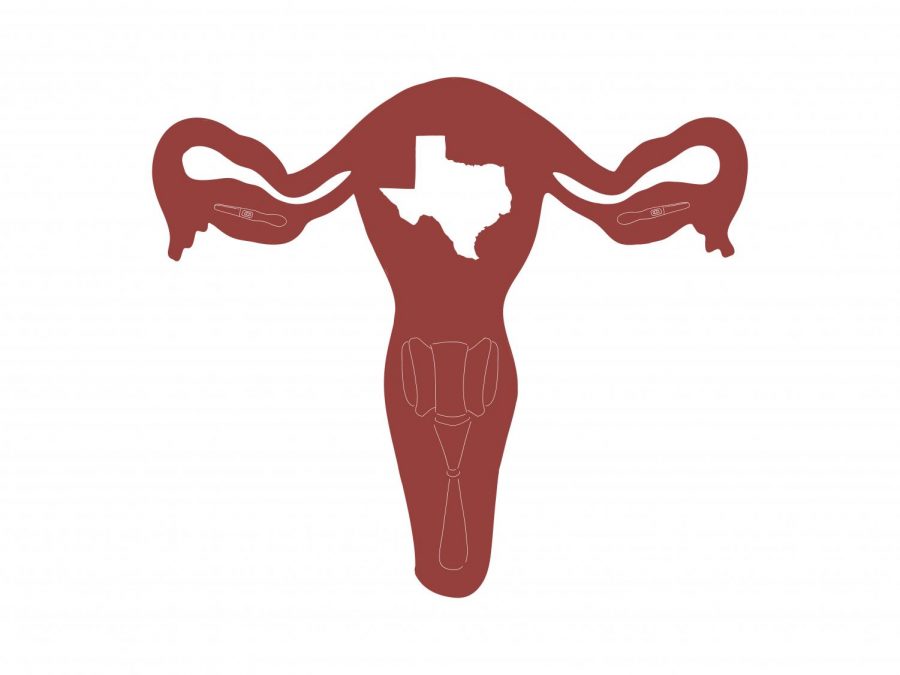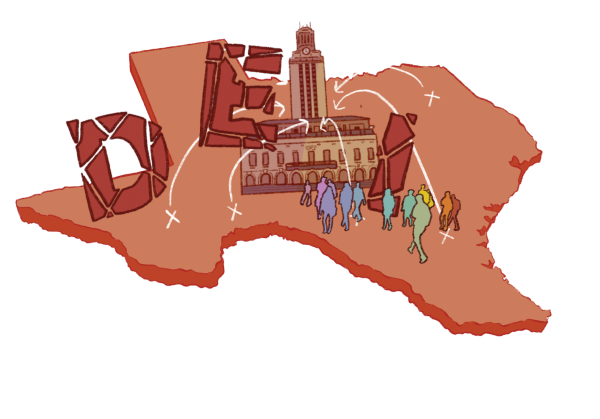New Heartbeat Bill Goes into Effect, Sept. 1
October 15, 2021
In the 1973 Roe v. Wade case, abortion became a constitutional right. Now, after 48 years, Texas passed what CNN deems its most restrictive abortion law yet.
On Sept. 1, 2021, the state of Texas passed a law banning abortions after six weeks, the time in a pregnancy when fetal cardiac activity can be detected, according to law makers. The law, known as the Texas Heartbeat Act, does not make any exceptions for pregnancies due to rape, sexual abuse, or incest. The only exception to getting an abortion is if a physician believes that the pregnant person’s life is in danger without the procedure.
Sarah Wheat, the chief external affairs officer at Planned Parenthood of Greater Texas, is very upset with this new law. According to Wheat, the Texas Heartbeat Act will do more harm than good.
“I think there are enormous negative consequences now that most people in Texas seeking an abortion can no longer access an abortion safely in a healthcare setting in Texas,” Wheat said. “They are forced to leave the state, if they are able, or forced to carry a pregnancy against their wishes. The law bans abortions after approximately six weeks into a pregnancy, about one to two weeks after a late period for someone with regular periods, which is before many people even realize they’re pregnant.”
For those who menstruate, a period occurs around every four weeks, but this fluctuates from person to person. For someone with a four-week time period between periods, they would have two weeks to realize they are pregnant and receive a legal abortion if they choose. According to the Texas Tribune, for someone with an irregular period, figuring out they are pregnant can be much trickier in the time frame specified in the Texas Heartbeat Act. Sophomore Aurna Mukherjee feels that it is unfair for the Texas Abortion Act to ban abortions so early in a pregnancy.
“Six weeks is often not enough for a woman to know about pregnancy, which means that it’s unfair to make it illegal to have an abortion after that point,” Mukherjee said.
According to the Texas Tribune, what makes this law unique, aside from being more restrictive than past laws, is that if someone successfully sues someone assisting a person in receiving an abortion, they can get a settlement of up to $10,000. This process has been referred to as “bounty hunting.”
“This can affect even Uber drivers that can be young adults that drive someone to an abortion clinic,” Mukherjee said.
Pro-choice organizations like Planned Parenthood are finding ways to combat this law. Other organizations, such as Women’s March, have organized protests. Women’s Marches protesting the abortion law were planned in cities all over the country, including Austin, on Oct. 2.
“Get involved, volunteer for organizations that you support, find out who represents you at the Texas Legislature, and let them know your views on the new abortion restriction law,” Wheat said.
Wheat also feels that Texans have the right to choose abortion care. According to Wheat, she does not feel that the government should enforce the abortion law.
“An important question for people in Texas is who is the best person to make personal private medical decisions for everyone in the state,” Wheat said. “Planned Parenthood advocates for individuals to have the right to make their own personal decisions including whether to seek an abortion. I trust our patients to make personal healthcare decisions that are right for them and their families and am firmly opposed to politicians making private decisions for everyone else.”
Unlike Planned Parenthood of Greater Texas, pro-life organizations, like the Texas Alliance for Life (TAL), are happy with this new development. TAL is an organization that does not support the choice to get an abortion unless it is necessary to save a pregnant person’s life. TAL has a yearly walk-a-thon to raise money for pro-life education and defending pro-life policies, among other things. TAL’s public policy analyst Dierdre Cooper is happy that the law is making abortions harder to get.
“TAL is glad that the Heartbeat bill is saving lives from abortion in Texas and saving women from the trauma of abortion,” Cooper said.“We are proud of the nearly 200 pregnancy resource centers in Texas that have been serving a record number of women over the past two weeks. They stand ready to help women and children in need.”
TAL is known for promoting ideas of wanting to protect what they consider forms of human life at all stages, according to the organization. Cooper feels that her job is rewarding because it lets her help others.
“I love my job because I love having the chance to save women and children from abortion,” Cooper said. “Women deserve so much more than abortion, and we owe it to them to give them other options, to give them support, and informed consent. My job allows me to combine my love of politics with my love for women and children in need.”
According to The Washington Post, anti-abortion organizations are associated with believing in right-wing politics. In a 5-4 conservative majority vote in the United States Supreme Court on Sept. 1, the abortion law was allowed to take effect in Texas.
“Planned Parenthood of Greater Texas has joined other abortion providers and organizations that provide support for Texans seeking abortion in lawsuits filed to overturn Texas’ extreme new law,” Wheat said. “Unfortunately, those lawsuits are still pending in the courts.”
However, Planned Parenthood disagrees. Unlike TAL, according to Wheat, Planned Parenthood feels that the best way to help others is to educate them about healthcare options.
“Communities are healthier when women are respected and have access to support and healthcare resources,” Wheat said. “I would love to see a world where everyone has equal access to health information and healthcare that is affordable and compassionate.”
On Oct. 6, a federal judge ordered a temporary preliminary injunction that effectively blocked the bill. As of the time of this writing, it is expected that Texas will appeal this move to the 5th U.S. Circuit Court of Appeals.










